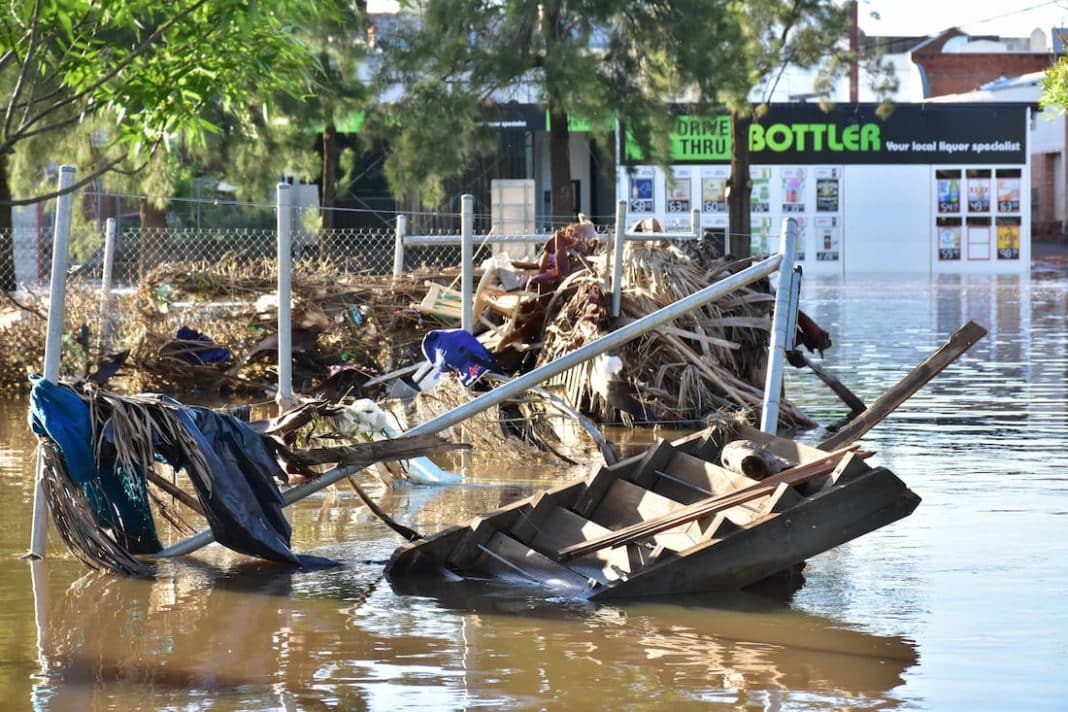Floods and other natural disasters caused $5 billion in economic activity losses last year, impacting almost seven out of 10 Australians.
Treasurer Jim Chalmers will lead an inspection of rebuilding efforts in northern NSW on Friday, as flooding continues to affect many parts of the country and he works on further support measures in the May budget.
In 2022, flooding and other severe weather affected Queensland, NSW, Tasmania, Victoria, Northern Territory and South Australia.
Floods continue in SA and in the Kimberley communities in Western Australia.
A National Emergency Management Agency analysis released on Friday shows 68 per cent of Australians live in a local government area that was subject to a natural disaster declaration in 2022.
Treasury estimates a $5 billion, or 0.25 per cent of real GDP, hit to the economy, mainly arising from reduced activity in mining, agriculture, accommodation and food services, retail trade and construction.
This does not include damage to housing or transport infrastructure or the costs to the federal budget.
The federal government made $3.5 billion in disaster recovery payments and allowances in 2022, as well as providing assistance through the states, and will spend billions more in 2023.
Global reinsurance company Munich Re estimated the NSW and southeast Queensland floods in February and early March were the fourth most costly global disaster in 2022.
Rebuilding of roads, bridges and other infrastructure is expected to take years.
From a consumer perspective, the floods – coupled with disrupted supply chains – pushed up the price of fruit, vegetables and other agricultural products.
Fruit and vegetable prices increased 16.2 per cent over the year to the September quarter, compared to an average annual rate of 2.5 per cent over the 10 years preceding COVID-19.
Further impacts on inflation are anticipated in coming months.
Dr Chalmers said natural disaster support would be a key focus of the May budget, as it was in his first budget in October.
“These natural disasters are first and foremost a human tragedy and that will always be our main focus, but there are substantial costs to the economy and budget too,” he said.
“We know these types of disasters put up prices, slow down growth in the near term and cost the budget billions of dollars.
“This isn’t optional spending – it has to be done.”
By Paul Osborne in Canberra



